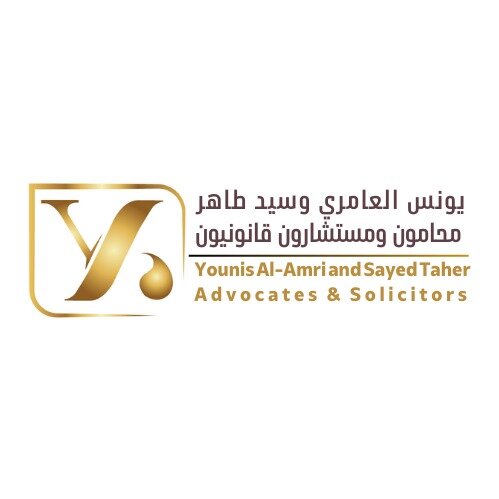Best Civil & Human Rights Lawyers in Oman
Share your needs with us, get contacted by law firms.
Free. Takes 2 min.
Or refine your search by selecting a city:
List of the best lawyers in Oman
About Civil & Human Rights Law in Oman
Civil and Human Rights in Oman are rooted in the nation's Basic Statute of the State, which guarantees certain fundamental rights and freedoms while also emphasizing the importance of social cohesion and national unity. Oman's legal framework is a blend of Sharia law, customary law, and secular codes. The government maintains a commitment to improving human rights standards, balancing traditional values with modern human rights principles.
Why You May Need a Lawyer
There are various circumstances in which individuals might seek legal assistance in the arena of Civil & Human Rights in Oman. Some common situations include:
- Discrimination cases, whether based on race, gender, religion, or nationality.
- Issues involving freedom of expression or assembly.
- Cases related to workplace rights and harassment.
- Challenges to unlawful detention or treatment by authorities.
- Protection of privacy and personal data.
- Family law cases where human rights considerations are involved.
- Education rights, especially in discriminatory settings.
Local Laws Overview
Oman's legal system incorporates elements from various sources, and several key aspects are particularly relevant to Civil & Human Rights:
- Basic Statute of the State: Provides the foundational principles for human rights, highlighting the dignity and freedoms of individuals.
- Laws on Public Gatherings: Regulate public assemblies, balancing the right to assemble with national security concerns.
- Labour Law: Includes provisions for fair treatment in employment, though enforcement may vary.
- Penal Code: Addresses various offenses and human rights violations, reflecting both Islamic and civil law traditions.
- Draft Personal Data Protection Law: Proposed legislation aimed at safeguarding personal data and privacy rights.
Frequently Asked Questions
1. Are there specific rights guaranteed to women in Oman?
Yes, while Oman upholds certain traditional gender roles, women's rights in areas such as education, healthcare, and employment are legally protected. However, societal norms may still influence their full application.
2. Can foreigners claim human rights violations in Oman?
Foreigners in Oman can report human rights violations encountered during their stay. It's advisable for them to seek counsel from their respective embassies or legal advisors.
3. How does Oman handle cases of freedom of expression?
Freedom of expression is recognized but is subject to limitations, particularly regarding content that could threaten state security or public order.
4. Is there a legal avenue for challenging unlawful detention?
Yes, individuals can seek legal counsel to challenge unlawful detention through the court system, if they believe their detention lacks legitimate grounds.
5. How are labor disputes involving human rights resolved?
Labor disputes, including those with human rights implications, can be addressed through the Ministry of Manpower and may require formal legal proceedings.
6. What protections exist against discrimination?
Discrimination based on race, gender, and other factors is addressed under Omans' laws, and individuals can file complaints if they face discriminatory practices.
7. Are there platforms for reporting human rights violations?
Violations can be reported to local authorities, legal firms specializing in human rights, or international organizations monitoring the region.
8. How does Oman address issues of refugees and asylum seekers?
Oman follows specific protocols for handling refugees and asylum seekers, often coordinated with international agencies to ensure adherence to humanitarian standards.
9. Are religious freedoms protected in Oman?
Oman allows for freedom of religious practice, though it is generally within the bounds of public order and societal norms.
10. What are the legal entitlements to education and healthcare?
Oman provides access to basic education and healthcare, with ongoing developments aimed at improving quality and accessibility for all residents.
Additional Resources
For individuals seeking more information or assistance on Civil & Human Rights issues in Oman, consider the following resources:
- Ministry of Legal Affairs: For information on legal regulations and rights.
- National Human Rights Commission: Offers guidance and support on human rights issues.
- Local Legal Aid Firms: Can provide legal counsel specific to civil and human rights cases.
- International Organizations like Amnesty International and Human Rights Watch, monitoring Oman's human rights landscape.
Next Steps
If you believe you need legal assistance with a Civil & Human Rights issue, consider the following steps:
- Document the Issue: Keep detailed records of any incidents or violations.
- Consult Legal Professionals: Contact a lawyer specializing in human rights law for an initial consultation.
- Reach Out to Relevant Authorities: Report to local or national authorities depending on the nature of the case.
- Seek Support from NGOs: Engage with non-governmental organizations that might offer advice and advocacy.
- Review Your Options: Work with your legal counsel to explore all legal avenues, which may include negotiation, mediation, or court proceedings.
Lawzana helps you find the best lawyers and law firms in Oman through a curated and pre-screened list of qualified legal professionals. Our platform offers rankings and detailed profiles of attorneys and law firms, allowing you to compare based on practice areas, including Civil & Human Rights, experience, and client feedback.
Each profile includes a description of the firm's areas of practice, client reviews, team members and partners, year of establishment, spoken languages, office locations, contact information, social media presence, and any published articles or resources. Most firms on our platform speak English and are experienced in both local and international legal matters.
Get a quote from top-rated law firms in Oman — quickly, securely, and without unnecessary hassle.
Disclaimer:
The information provided on this page is for general informational purposes only and does not constitute legal advice. While we strive to ensure the accuracy and relevance of the content, legal information may change over time, and interpretations of the law can vary. You should always consult with a qualified legal professional for advice specific to your situation.
We disclaim all liability for actions taken or not taken based on the content of this page. If you believe any information is incorrect or outdated, please contact us, and we will review and update it where appropriate.
Browse civil & human rights law firms by service in Oman
Oman Attorneys in related practice areas.
Browse civil & human rights law firms by city in Oman
Refine your search by selecting a city.












